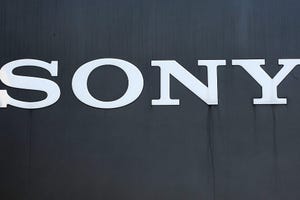Politics Takes Center Stage At SoCal Medical Device Industry Event
OCTANe's Medical Device & Investor Forum took place just three-and-a-half weeks before the upcoming U.S. presidential election.
October 18, 2012
Politics were a hot topic at the the Medical Device & Investor Forum, held just three-and-a-half weeks before the presidential election by OCTANe, a group promoting technology job and wealth growth in Orange County, CA.
Representative Erik Paulsen (R-MN) kicked off the event, which took place in Irvine, by telling attendees that Congress has a lot of work to do in its upcoming session.
“This lame duck better not be lame,” he said. “It better be a pretty amazing duck because the fragile economy and the livelihood of a lot of the families and companies such as the innovators in this room depend on the choices that we will make.”
While Paulsen pointed to successes such as the passing in July of a new user fee law, he stressed that further reforms are needed at FDA. Of particular concern, he said, is the resolution Congress passed last session to keep the government funded. It will freeze funding for all programs, including FDA, at fiscal year 2012 levels.
“I’m concerned the FDA will use that as an excuse to not meet performance goals that are part of the new law,” Paulsen said.
To prevent that, Paulsen and his House Medical Technology Caucus cochair, Representative Anna Eshoo (D-CA), have asked the agency to provide early updates as to their progress in meeting the goals and deadlines outlined in the Food and Drug Administration Safety and Innovation Act.
Another issue he urged Congress to tackle is the medical device tax, calling it a “ticking time bomb.” The House passed legislation to repeal the tax in June, and Paulsen says he hopes the Senate will do the same in its upcoming session. He also expressed concern that the IRS has not finalized regulations that provide guidance on the tax.
“We’re only a few months away, and I’m fearful that what’s going to happen is right after the election they’re going to dump this new rule out there, and you’re going to have a month-and-a-half to respond,” he said.
Paulsen also called for an overhaul of the tax code and advocated trade regulations to enable American businesses to remain competitive. He acknowledged the still-sluggish economy and said industries such as medtech will help it rebound.
“Growth in this industry is going to be a big part in success and helping to grow our economy, no doubt,” he said.
A panel on the upcoming presidential election capped off the event.
“The impact to our industry is tremendous, no matter what side of the coin you favor,” said moderator Jim Mazzo, a president of Abbott Medical Optics. At stake, he said, are the fates of healthcare reform, sequestration, and the Bush tax cuts. “We are facing a tremendous amount of issues; not just one or two,” he said.
The panel, which featured lobbyist Jeff Kimbell and Mark Leahey, president and CEO of the Medical Device Manufacturers Association, discussed scenarios that could result from the election—from who Republican presidential nominee Mitt Romney might choose as Health and Human Services secretary (Louisiana governor Bobby Jindal was mentioned) and FDA commissioner (Scott Gottlieb, former FDA deputy commissioner for medical and scientific affairs, would be good candidate, they said) to whether Romney will repeal the Affordable Care Act on his first day in office if elected (“The truth is, it’s not that easy,” Kimbell said).
Asked which president the medtech industry would benefit from the most, all three panelists said Romney.
The session closed with the panelists stressing the importance of ensuring the industry’s voice is heard in Washington, D.C. “If you’re not at the table, you’re on the menu,” Mazzo said.
—Jamie Hartford is the associate editor of MD+DI. Follow her on Twitter @readMED.
About the Author(s)
You May Also Like


